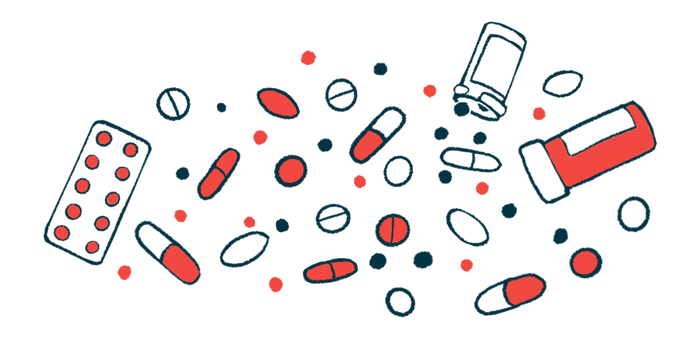Anticoagulant therapy does not extend survival in PAH: Study
Findings supported by pooled analysis of published studies

Treatment with anticoagulants, also known as blood thinners, does not extend survival in people with pulmonary arterial hypertension (PAH), according to a large French study.
These findings were supported by an additional pooled analysis of published studies involving more than 2,000 PAH patients, researchers found.
“From the most rigorous analysis to date, the study … affirms against the routine administration of anticoagulation in PAH,” Katarina Zeder, MD, PHD, and Bradley A. Maron, MD, of the University of Maryland School of Medicine, wrote in an editorial comment published alongside the study. “These data are compelling and should be considered readily by the practicing community.”
The study, “Association Between Anticoagulant Therapy and Survival in Pulmonary Arterial Hypertension: A Registry Report and Updated Meta-Analysis,” was published in JACC, a Journal of the American College of Cardiology.
Existing studies generate conflicting results
In PAH, narrowing of the blood vessels that pass through the lungs restricts blood flow, elevates blood pressure, and increases the workload on the heart, which can lead to right heart failure.
Early studies suggested that the blood-clotting system in people with PAH is abnormally activated, and the use of anticoagulant therapy appeared to extend survival. As a result, anticoagulants were prescribed to PAH patients for many years, particularly when treatment options were limited.
Since then, the role of anticoagulant therapy in the management of PAH has become uncertain, as existing studies have generated conflicting results.
To address this, researchers in France investigated a potential link between anticoagulant therapy starting at the time of PAH diagnosis and patient survival, using data from the French Pulmonary Hypertension Registry.
Among the patients diagnosed with PAH between 2009 and 2020, 380 received anticoagulant therapy and 1,217 did not. After propensity-matching to adjust for potential factors that may have influenced treatment selection, the resulting patient population had a mean age of 61 years and was predominantly female (66%). Most had idiopathic (unknown cause) or hereditary PAH (65%), followed by connective tissue disease-PAH (34%).
Properly designed clinical trial ‘remains essential’
According to the analysis, the median survival among patients who received anticoagulants at diagnosis was similar to that among patients without such treatment (5.62 vs. 5.37 years).
The results were comparable when assessed by PAH subtype with or without anticoagulant therapy: idiopathic/hereditary PAH (6.46 vs. 6.45 years) and connective tissue disease-PAH (3.70 vs. 3.77 years).
When the team excluded patients with a history of venous thromboembolism, or blood clots in the veins, and atrial fibrillation, an irregular and often rapid heartbeat, the outcome remained consistent.
The researchers then conducted a meta-analysis of published studies that examined anticoagulant therapy in PAH to confirm these findings. A database search yielded five eligible studies, which were pooled with the French work to include a total of 2,337 PAH patients.
Our analysis, based on a large national registry and integrated into an updated meta-analysis of contemporary registry data, did not show an association between anticoagulant use and improved survival outcomes.
Among them, 1,628 had idiopathic/hereditary PAH, approximately one-third (36%) of whom received anticoagulant therapy, and 662 patients had connective tissue disease-PAH, with about half (48%) receiving anticoagulants.
Here, anticoagulant therapy did not extend survival in the overall PAH population, nor among those with idiopathic/hereditary PAH or connective tissue disease PAH.
“Our analysis, based on a large national registry and integrated into an updated meta-analysis of contemporary registry data, did not show an association between anticoagulant use and improved survival outcomes,” the researchers wrote.
They added that a properly designed clinical trial “remains essential to definitively determine the therapeutic role of anticoagulation in the management of PAH.”
As a study limitation, the team said that the type of anticoagulant and dosage regimen were not accounted for.









